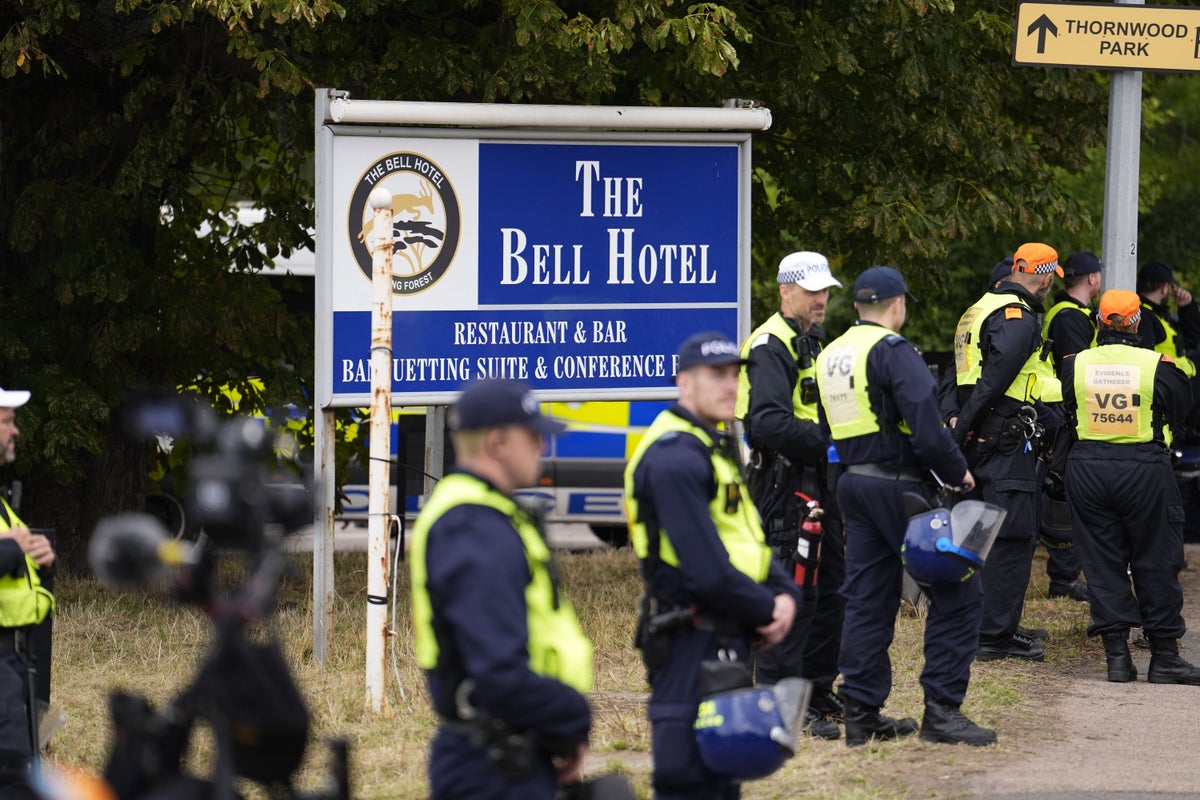
A wave of protests outside hotels used as temporary accommodation for asylum seekers is expected in the coming days.
It comes as the latest figures showed there were more than 32,000 asylum seekers in hotels, marking a rise of 8% during Labour’s first year in office.
Stand Up To Racism is preparing to hold counter-protests outside hotels housing asylum seekers on Friday, including in Bournemouth, Cardiff and Leeds, with further demonstrations expected on Saturday.
Meanwhile, councils across the country controlled by Labour, the Conservatives and Reform UK are investigating whether they could pursue legal challenges against asylum hotels.
This follows a judge granting Epping Forest District Council a temporary injunction on Tuesday that blocked asylum seekers from being housed at the Bell Hotel in Essex.
The council had argued the injunction was needed amid “unprecedented levels of protest and disruption” in connection with asylum seeker accommodation.
Shadow justice secretary Robert Jenrick said the people of Epping who protested and its council have “led the way”, writing in The Telegraph that “our country’s patience has snapped”.
His Conservative colleague Chris Philp, the shadow home secretary, said on Thursday that people have “every right” to protest over asylum hotels in their areas.
Labour has pledged to end the use of hotels to house asylum seekers by the end of this parliament in 2029.
Home Secretary Yvette Cooper insisted Labour had taken “crucial steps” in the past year towards this by cutting the asylum backlog and money spent on the asylum system, increasing returns of failed asylum seekers and overhauling appeals.
While the number of asylum seekers housed in hotels has risen, Government spending on asylum in the UK is down 12%, data published on Thursday showed.
The number waiting on an initial decision on an asylum application in the UK at the end of June dropped below 100,000 for the first time in four years.
Asylum seekers and their families can be housed in temporary accommodation, known as contingency accommodation, if they are awaiting assessment of their claim or have had a claim approved and there is not enough longer-term accommodation available.
When there is not enough housing, the Home Office – which has a legal obligation to provide accommodation to asylum seekers who would otherwise be destitute – can move people to alternatives such as hotels and large sites, like former military bases.
Amid hotel protests, campaigners including Rape Crisis and Refuge have warned conversations about violence against women and girls are being “hijacked by an anti-migrant agenda” which they argued fuels divisions and harms survivors.
